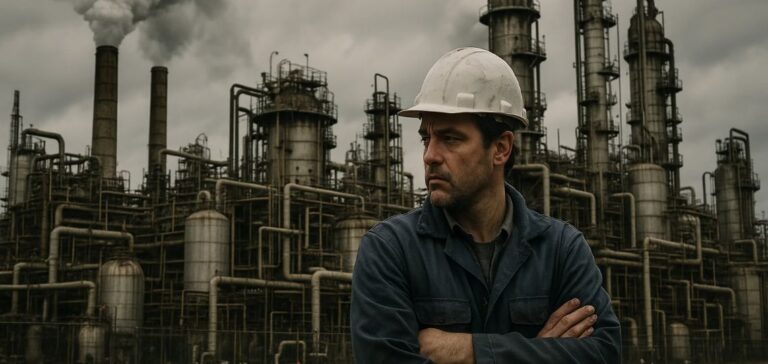The European chemical industry, spanning from petrochemical derivatives to pharmaceuticals, is facing a major contraction risk due to deteriorating international trade relations. France Chimie, which represents 4,000 sector companies in France, stated that 47 industrial sites are under direct threat nationally, with up to 350 facilities potentially disappearing across the European Union. This estimate is based on the compounded impact of a trade war between China and the United States, exacerbated by global overcapacity and higher production costs in Europe.
Consequences of increased tariff pressure
According to Frédéric Gauchet, President of France Chimie, recent tariff hikes imposed by Beijing and Washington are forcing producers from both countries to redirect their goods towards the European market, creating a potential influx of low-priced products. The organisation estimates that €10-20bn worth of Chinese chemical products and $5-10bn worth of American products could enter the European market, where import duties are capped at 3%. This redirection of trade flows could intensify dumping practices, particularly in basic materials such as PVC plastics, impacted by both US and Egyptian exporters.
Upstream sites and jobs at risk
The most vulnerable segment is the basic chemicals sector, often reliant on high energy consumption. Frédéric Gauchet warned of the potential disappearance of nitric acid production in Europe without corrective action. France Chimie assesses that European sites’ competitiveness is weakened by a combination of high energy costs, heavy regulatory burdens, and what it describes as an unfavourable tax system. The association forecasts between 150,000 and 200,000 job losses in the chemical industry across Europe, including 15,000 to 20,000 in France.
Call for an industrial emergency plan
France Chimie is calling for the implementation of a European emergency plan to safeguard the continent’s production capacity. The organisation emphasises that the current situation is not merely cyclical but results from an accumulation of structural weaknesses, worsened by China’s massive investments in modern, low-cost facilities. These sites are also benefitting from easier access to raw materials, notably from Russia, amid the ongoing conflict in Ukraine.






















